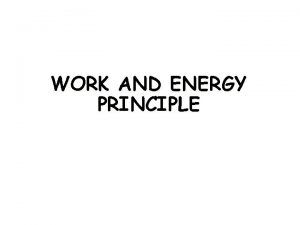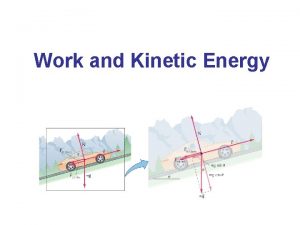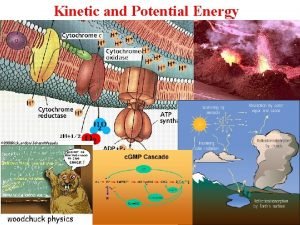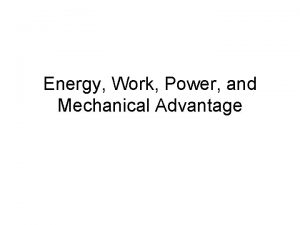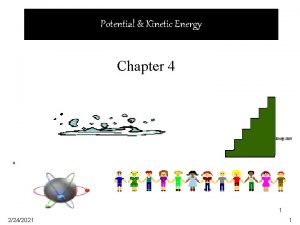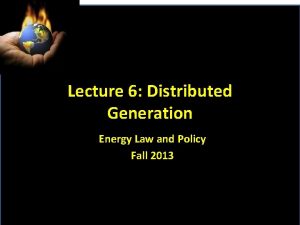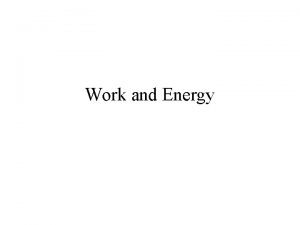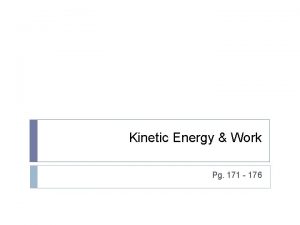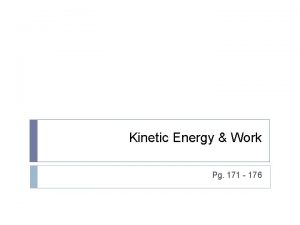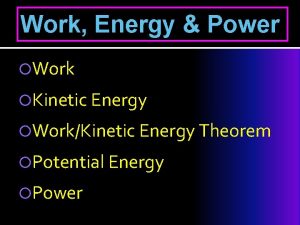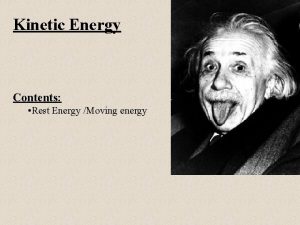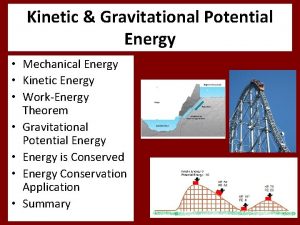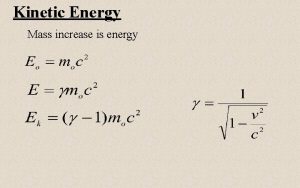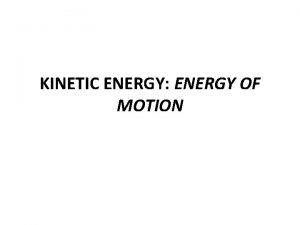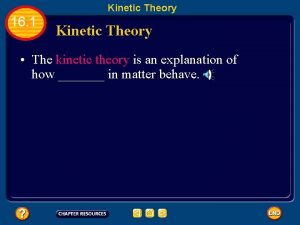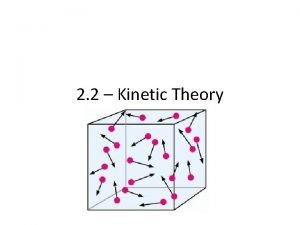Lecture 10 Work and kinetic energy Kinetic energy
















- Slides: 16

Lecture 10: Work and kinetic energy • Kinetic energy • Vector dot product (scalar product) • Definition of work done by a force on an object • Work-kinetic-energy theorem

Kinetic energy is a scalar It does not have components!

Effect of force components Components of force parallel and perpendicular to velocity have different effects. FII causes change in magnitude of velocity vector (speed) �changes kinetic energy F ┴ causes change in direction �does not change kinetic energy

Dot product We need to find a way to determine how much of two vectors is parallel Vector dot product The dot product is a scalar.

Dot product selects parallel component

What if θ > 90º?

Special cases

Properties of dot product commutative distributive Same unit vectors Orthogonal unit vectors ⟹Dot product in components:

Work Selects component of force parallel to path, i. e. parallel to velocity, which changes kinetic energy Force can vary in magnitude and direction along the path

Work by constant force Caution: Force must be constant in magnitude and direction

Force perpendicular to path If force is perpendicular to the path at every point* *whether constant in magnitude or not

Work done by a spring

Net Work done by the net force on object as it moves along path. But also (and easier to calculate): Sum of work done by all individual forces

Work-Kinetic Energy-Theorem Work = effect of force component parallel to velocity ⟹ changes kinetic energy

Sign of work Consider one single force acting on object

Example A block of mass M is pulled by a force of magnitude P directed at angle θ above the horizontal a distance D over a rough horizontal surface with coefficient of friction μ. Determine the change in the block’s kinetic energy.
 Principle of work and kinetic energy
Principle of work and kinetic energy Work-energy theorem formula
Work-energy theorem formula Work done and kinetic energy
Work done and kinetic energy 01:640:244 lecture notes - lecture 15: plat, idah, farad
01:640:244 lecture notes - lecture 15: plat, idah, farad Chapter 4 work and energy section 1 work and machines
Chapter 4 work and energy section 1 work and machines What is potential energy
What is potential energy Potential energy
Potential energy Mechanical advantage
Mechanical advantage Potential energy units
Potential energy units Physics 03-01 work and the work-energy theorem
Physics 03-01 work and the work-energy theorem Potential energy of a spring at equilibrium
Potential energy of a spring at equilibrium Gravitational kinetic energy
Gravitational kinetic energy Gravitational potential energy vs kinetic energy
Gravitational potential energy vs kinetic energy Kinetic energy to thermal energy
Kinetic energy to thermal energy Kinetic potential
Kinetic potential What is the definition of chemical potential energy
What is the definition of chemical potential energy Utilities and energy lecture
Utilities and energy lecture
